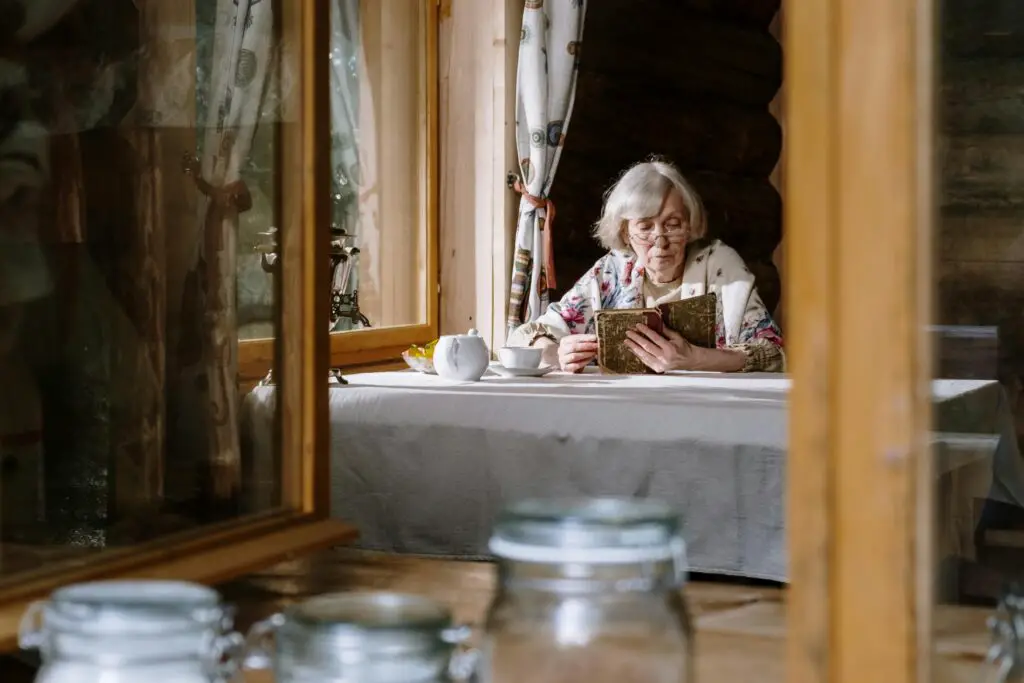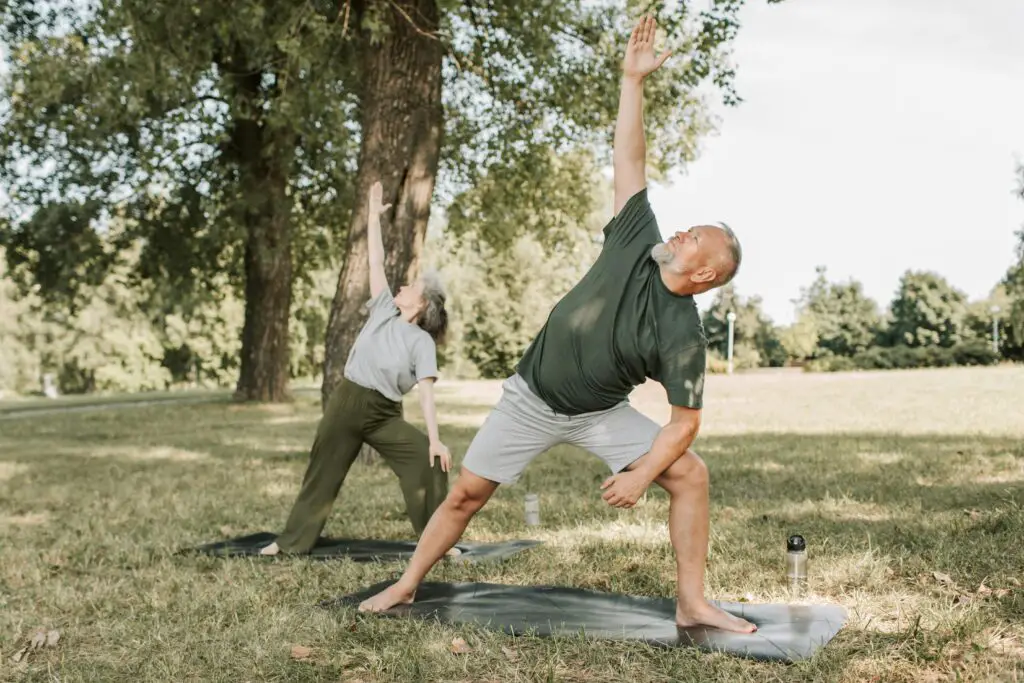1. Your Routine Disappears Overnight

One day you’re waking up with a full schedule and deadlines, and the next, there’s just… nothing. At first, it feels like a dream, but that structure you once grumbled about? You start to miss it more than you expected. Without a clear routine, days can blur together, making you feel a little lost. It takes effort to create a new rhythm for your life, one that feels meaningful but also relaxed shares the New York Times.
No one really prepares you for how disorienting it can be to suddenly have total freedom. It’s like stepping off a moving train and realizing you’re not sure which direction to walk. Eventually, you’ll find your footing, but it’s not automatic. You may even find yourself craving a little structure again, just to make the days feel balanced says Reddit.
2. Spending Doesn’t Automatically Slow Down

You assume you’ll spend less because you’re staying home more, but somehow, the bills keep coming. Between hobbies, travel, home repairs, and spoiling the grandkids, money still flies out the door. It’s surprising how many unexpected expenses creep in, especially medical ones. Retirement isn’t as cheap as it seems, and if you’re not watching closely, your savings can dwindle fast says the Economic Times.
Many retirees wish they’d budgeted a little more realistically. It’s easy to underestimate how long your money needs to last. A little financial foresight now can prevent a lot of stress later. Even small recurring costs, like subscriptions or outings, can quietly eat away at your nest egg adds Morgan Stanley.
3. Medicare Isn’t a Magic Fix

Everyone tells you Medicare kicks in and you’re set, but the truth is a little more complicated. Yes, it helps, but there are premiums, gaps, and plenty of fine print that nobody warns you about. Many retirees are shocked by how much they still have to pay out of pocket. Supplemental plans are often necessary, and even then, costs can sneak up on you.
It’s smart to do your homework ahead of time, not when you’re already facing a health issue. Insurance doesn’t mean everything is covered the way people assume. Having a financial cushion specifically for medical needs is wise. The reality is, healthcare planning in retirement takes just as much strategy as any other part of your finances.
4. You Might Feel Useless at First

Even if you were counting down the days to retire, once you actually do, the lack of purpose can hit hard. Your job may have been stressful, but it gave you identity and daily goals. When that disappears, it’s easy to feel like you’ve lost part of yourself. It takes a while to figure out who you are without your work badge or calendar full of meetings.
The good news is that you can build a new sense of purpose, but it takes some soul-searching. It’s a reminder that meaning doesn’t stop when your paycheck does. It just has to be rediscovered in new ways. Whether through volunteering, mentoring, or learning something new, finding that spark again is essential.
5. Friends Start to Drift

You imagine retirement as long lunches with friends and spontaneous get-togethers, but life has other plans. People move, get busy with grandkids, or face health issues that make staying social harder. Suddenly, your social circle starts shrinking. If you don’t actively make plans or seek new friendships, the days can feel quiet and even lonely.
It helps to get involved in community groups or classes to keep that human connection alive. Social interaction takes more planning than it used to. You have to be intentional about reaching out or it just won’t happen. And while it’s hard at first, forming new friendships later in life is not only possible, it’s rewarding.
6. Your Partner Might Drive You Nuts

Spending more time together sounds romantic—until you’re both home all day, every day. Even the happiest couples have to renegotiate their space and roles. You might start bickering over little things just because you’re adjusting to a new dynamic. Retirement shifts the balance, and figuring out how to coexist peacefully again is no small thing.
Some couples thrive, while others find they need outside interests to stay sane. Personal space becomes something you both need more than you realized. Having separate hobbies or routines can help keep the peace. It’s all about learning to live together in a new way, with patience and a sense of humor.
7. You May Not Sleep Better

You’d think not setting an alarm would mean glorious sleep, but it doesn’t always work that way. Many retirees struggle with insomnia or restlessness once they stop working. Without a reason to get up early, your sleep schedule can get out of whack. Plus, age-related changes in sleep patterns can kick in at the same time.
Some people find it helpful to stick to a consistent bedtime and morning routine. Good rest doesn’t come automatically just because you’re off the clock. Prioritizing sleep hygiene becomes more important than ever. A little structure, even in retirement, can make your nights more restful and your days more energetic.
8. Downsizing Is Harder Than It Looks

The idea of selling the house and living simply is appealing, but actually doing it? That’s a different story. Sorting through decades of memories is emotionally exhausting. Every drawer holds a piece of your life, and deciding what stays and what goes can feel overwhelming. It’s not just about space, it’s about letting go—and that’s rarely easy.
Many people underestimate how long downsizing takes and how deeply it affects them. You’ll need both emotional and physical energy for the process. Give yourself grace and don’t rush it. And remember, simplifying your life doesn’t mean erasing your past—it just means making room for your next chapter.
9. Your Hobbies Can Lose Their Spark

You always dreamed of having more time to paint, golf, or knit, but somehow it doesn’t hit the same when you have endless time to do it. The excitement of squeezing in a hobby after work isn’t there anymore. When every day is free, it’s easy to procrastinate or lose momentum. The key is to schedule your hobbies like appointments and mix in new ones to stay challenged.
Hobbies need structure too, or they start to feel stale. It turns out that a little pressure made them more exciting. Variety and novelty can help reignite that spark. Trying something completely different might be just what you need to feel inspired again.
10. Your Adult Kids Might Rely on You Too Much

Once you retire, some kids start seeing you as more available—for babysitting, advice, or even financial help. And it’s hard to say no when you love them. But it can stretch your time and energy in ways you didn’t anticipate. Setting gentle boundaries becomes important if you want to enjoy your own plans.
Many retirees wish they’d been clearer from the start. It’s okay to be generous, but not at the expense of your own well-being. Your retirement is yours too, and it’s okay to protect that. It’s all about finding a healthy balance that supports both your kids and your peace of mind.
11. Boredom Is a Real Threat

After the travel and initial excitement wears off, many retirees face long days with not much to do. You think you’ll love the free time, but it can feel like too much of a good thing. Without purpose or regular activities, boredom sneaks in. It’s not just about keeping busy, it’s about doing things that make you feel alive.
Volunteering, part-time work, or classes can help fill the gap. A calendar with some structure can make a world of difference. Don’t be afraid to try something completely new. Retirement can be a time to explore passions you never had time for—if you’re willing to seek them out.
12. You Might Go Back to Work

Some people do it for extra income, others for social reasons or just because they miss having a routine. But going back to work in retirement is more common than you’d think. It doesn’t always mean a 9-to-5—sometimes it’s consulting, freelancing, or seasonal work. And for many, it brings a surprising amount of joy and balance.
Retirement doesn’t have to mean the end of working altogether. It’s just another chapter, not the last one. You can rewrite your work life on your terms. The trick is finding something that fits your new pace and brings purpose without pressure.
13. Travel Isn’t as Easy as You Imagined

Yes, you finally have time to go places, but your energy (and joints) might not be on the same page. Long flights, early wake-ups, and packed itineraries become more draining than exciting. Travel in retirement often requires more planning and a slower pace. You may need to factor in health needs or choose comfort over adventure.
It’s still worth doing, but it doesn’t always look like the travel commercials. You’ll probably appreciate quieter, more meaningful experiences over tourist traps. Flexibility becomes your best travel companion. And sometimes the best trips are the ones you take close to home.
14. Your Identity May Feel Unsteady

When people ask what you do, and you say “I’m retired,” it can feel like the conversation ends there. That title doesn’t explain who you are or what you care about. Many retirees go through a quiet identity crisis as they figure out life beyond work. It’s a big transition that involves letting go of labels and finding new ones.
The journey is worth it, but it can feel lonely without support. Rediscovering who you are outside of your career takes time. But what you find might surprise and delight you. Retirement isn’t the end of your story—it’s a chance to write a brand new one.
